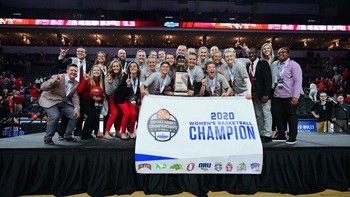USD to host second ever workshop on Germanium based Detectors and Technology
More than 100 participants from Belgium, China, France, Germany, Italy, the United Kingdom, the United States and Taiwan are anticipated to attend the workshop that will feature several international experts and panel discussions on dark matter, neutrino-less double-beta decay, low energy neutrino physics, crystal growth and germanium detectors. The schedule on Monday includes Dr. Marie Odile Lampert, CEO for Canberra-France, who will discuss “Germanium Detectors at Canberra France” at 9:50 a.m.; Dr. Paul Brink from Stanford Linear Accelerator Center at Stanford University talking about dark matter at 12:35 p.m.; USD’s Dr. Guojian Wang, who will address crystal growth at 2:50 p.m.; and Dr. Hua Jiang, Tsinghua, China, who is scheduled to talk about “China crystal growth” at 3:30 p.m. The afternoon and evening sessions on Monday will be dedicated to programs promoting Underground Science for Junior Scientists.
Tuesday, Sept. 16 includes Dr. Alan Poon from Lawrence Berkeley National Laboratory at the University of California speaking about neutrino-less double-beta decay at 9 a.m.; Dr. Kate Scholberg from Duke University discussing low energy neutrino physics using germanium detectors at 10:20 a.m.; a lecture entitled, “Two-dimensional spatial imaging of charge transport in germanium at low temperature,” by Stanford Researcher Robert Moffatt; a poster and industry exhibition; and a banquet in the Muenster University Center Ballroom with USD Provost and Vice President for Academic Affairs James Moran and Matthew Moen, dean of USD’s College of Arts & Sciences.
The final day of the workshop on Wednesday, Sept. 17 introduces gamma tracking and imaging discussions from international experts; a low background counting session; and a panel discussion on surface contamination featuring USD Associate Professor of Physics Dongming Mei.
The first workshop devoted to Germanium-Based Detectors and Technology was held in 2010 on the campus of the University of California-Berkeley.
“This workshop hosts experts focused on rare event physics detection,” noted Christina Keller, physics professor and associate dean for administration at USD. “With the proximity of the Sanford Underground Research Facility in Lead, EPSCoR’s germanium crystal growing infrastructure and the state governor’s research center; USD is bringing together researchers from several EPSCoR areas and key leaders in underground physics from throughout the world. It’s a very unique workshop and we’re very fortunate to host it on the USD campus.”
Sponsored by the University of South Dakota, South Dakota Board of Regents, the National Science Foundation, South Dakota Governor’s Office of Economic Development, South Dakota Small Business Innovative Research Program, and the South Dakota Experimental Plan to Stimulate Competitive Research (EPSCoR) Program, the Vermillion Area Chamber of Commerce & Development Company, and SkySprings Nanomaterials in Houston, Texas, the workshop is open to faculty, young scientists, postdocs, graduate students and undergraduate students. In addition to keynote speakers and panel discussions, the workshop will also feature a germanium-crystal growing laboratory at Patterson Hall on the USD campus.
For more information, including a complete listing of activities and participants, please visit www.geworkshop.org/indico/conferenceDisplay.py?confId=0.


